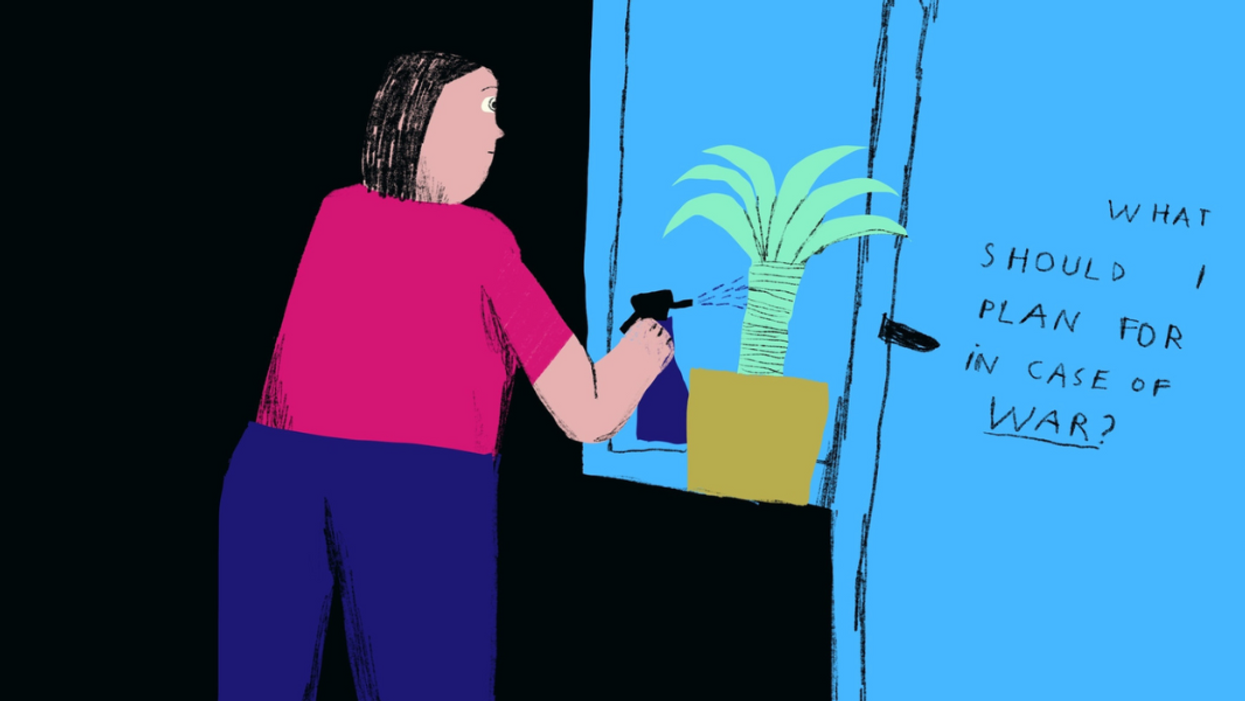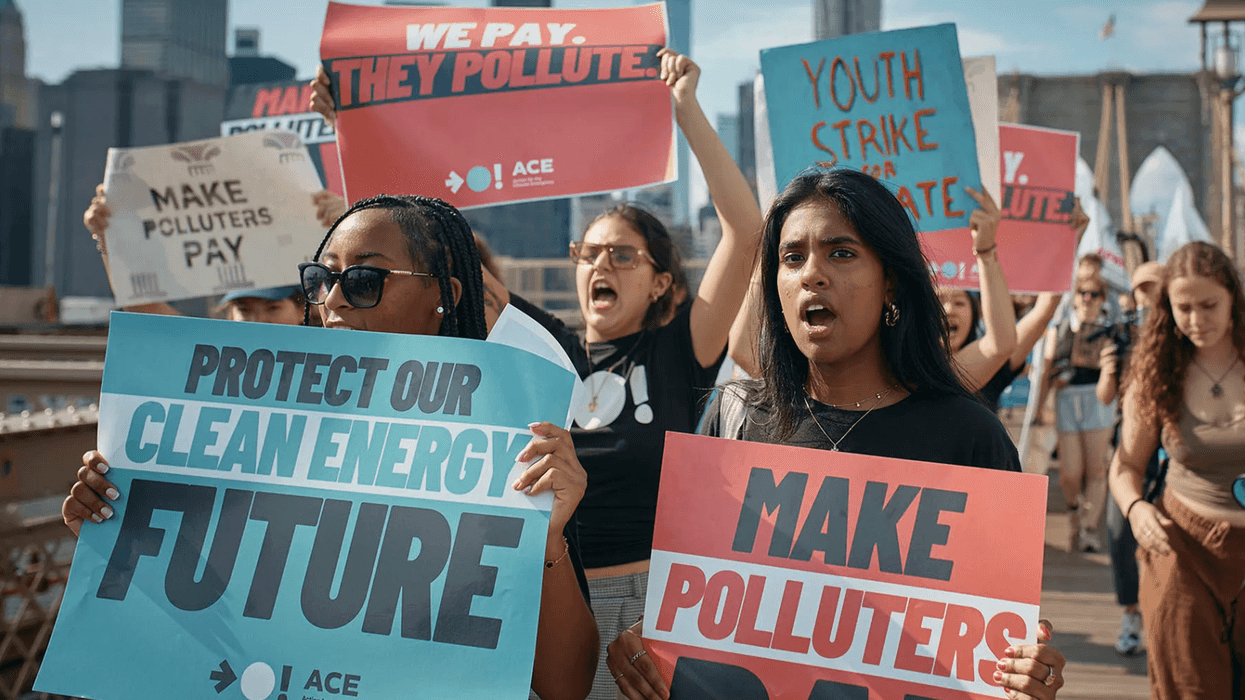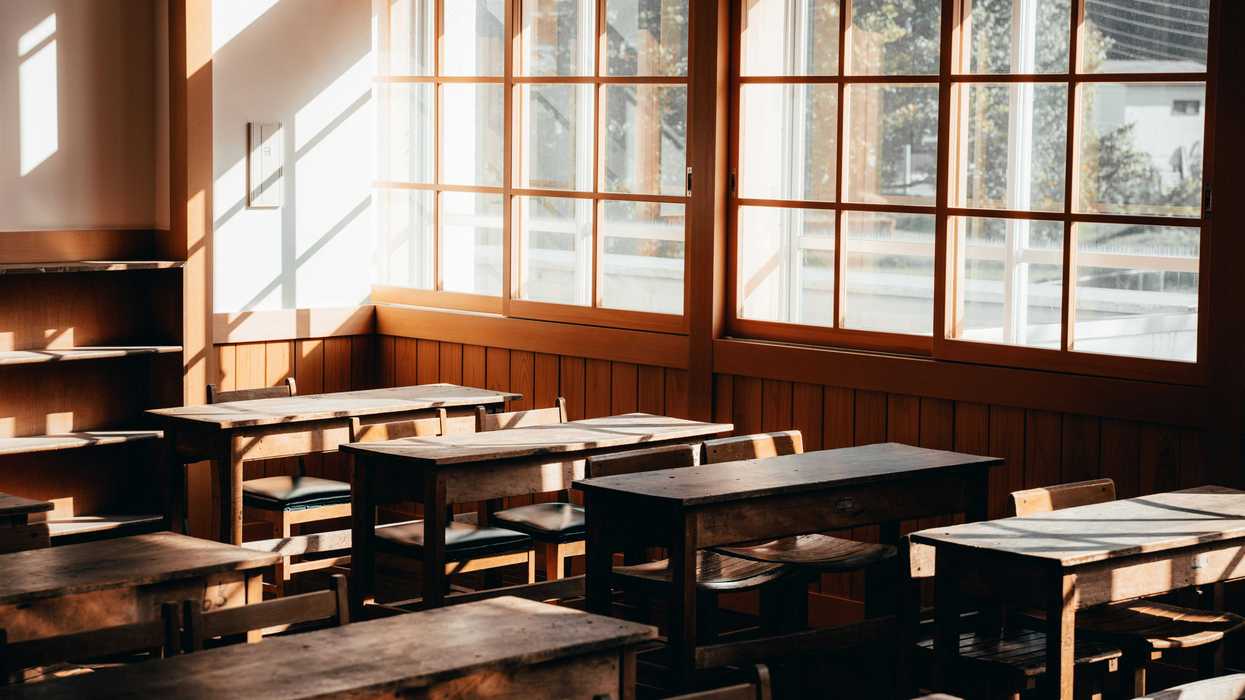For Ukrainian artists, art is a powerful tool of resistance in the face of Russian aggression.
More than 9.1 million refugees have left the country since Vladimir Putin initiated the invasion of Ukraine, while around 8 million people remain displaced internally. One-quarter of the country's total population have abandoned their homes.
In these tragic times, many Ukrainian artists have used their skills to help raise awareness of the devastation. Photographer Vladyslav Krasnoshchok is one such artist.
In Kharkiv and with his camera, Krasnoshchok has captured ruined buildings, mounds of weapons, and refugees camping in the subway station, which he has posted on his Instagram.
Krasnoshchok is far from alone in his endeavors. Anna Sarvira is a graphic artist who was based in Kyiv before she fled Ukraine and does not know when she will be able to return.
Sarvira has created works centered around daily life in Ukraine. These images, available on the Museum of Modern Art website, show the haunting questions Ukrainians ask themselves as they try to survive. In one picture, a woman is preparing a meal with eggs, and the caption shows her wondering, "will I be fast enough to reach the bomb shelter?" Another shows a woman carrying a large backpack with the text "will I have to run?"
Some artists hope that they can defend their country through their art.
Singer Lyana Mytsko is the director of the Lviv Municipal Arts Center; when the war began Mytsko made the center into a shelter for war evacuees in addition as a place to create art. Mytsko views art as a vital way to defend the country.
While Putin argues that Ukraine is not a real country and does not have a culture of its own, Mysko believes it is up to Ukrainian artists to prove him wrong.
In a recent NPR article, Mytsko argued that while many artists feel that they cannot take a gun into their hands, "they must know that every one of them is a gun of Ukrainian culture. Every one of them can make music and make pictures and can take our soul up, up, up."
Some Ukrainians are using their skills to defend Ukraine in a more literal sense. One example is Ukrainian artists such as Volo Bevza and Victoria Pidust who joined the defense groups in Lviv by making tank traps.
The spiky anti-tank structures, commonly known as "Czech hedgehogs," are made by welding metal I-beams and chains. These structures can puncture tires or flip vehicles that attempt to drive over them.
Together with the help of Victoria's brother Mark Pidust, the artists have been able to create about 100 anti-tank structures to help protect cities across Ukraine.
As Ukraine’s artists continue to fight for their country's freedom, organizations such as Artmajeur have worked to help them sell their work online. Artmajeur is a PR distribution network that has worked to clear obstacles to make sure Ukrainian artists can keep working and continue to sell their work.
Artmajeur has found artists, carriers willing to pick up art in war zones, and a payment processor that would pay artists in Ukraine as many banks have stopped doing business there.
Artmajeur now has a collection of more than 3,000 Ukrainian artists whose work you can browse, collect and buy safely. The benefits from these sales go directly to the Ukrainian artists.
Like artists in previous war zones, Ukrainian artists have joined the fight, using their expression to demonstrate and help the world feel the horrors of war that are easy to dismiss.
As the war in Ukraine continues to rage on, it is up to us to support the citizens fighting to protect their homeland. Supporting these artists and the work is one such way to do that.



















